There are some signs that are best caught early.
Others are reading now
Stomach cancer is a serious disease that occurs when cells in the stomach lining grow uncontrollably.
The symptoms can be non-specific and develop gradually, often resulting in the disease being detected late.
Therefore, early diagnosis and timely treatment are crucial for improving the prognosis.
Research shows that lifestyle factors such as diet, smoking, and alcohol consumption can increase the risk of developing stomach cancer.
Also read
Regular check-ups and attentiveness to the body’s signals are important tools for the early detection of the disease.
By raising awareness of symptoms and risk factors, preventive measures can be promoted, potentially reducing the number of serious cases.
Stomach Pain
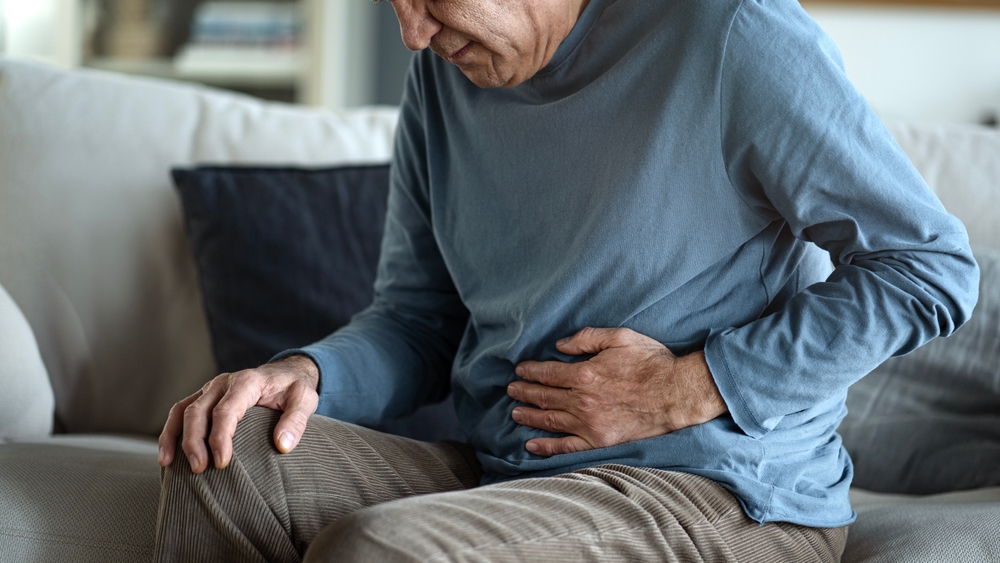
Discomfort or pain in the upper abdomen can often be one of the first signs that something is wrong.
The pain may range from a mild, irritating sensation to a more intense and persistent discomfort that makes daily activities difficult.
Especially if you feel a lump or pressure in the area, it is important to have it examined further.
Early diagnosis can have a significant impact on treatment options if it turns out to be stomach cancer.
Dyspepsia

Frequent dyspepsia can manifest as stomach pain, bloating, and a general feeling of discomfort.
Repeated experiences of reflux or feeling full after a very small meal may indicate an irregularity in the digestive system.
This condition can signal a disorder that, in some cases, is related to stomach cancer.
Therefore, it is a good idea to have persistent symptoms examined by a specialist.
Fatigue

Persistent fatigue, weakness, or a lack of energy can often be more than just the result of a busy lifestyle.
Such symptoms can be signs of anemia, which sometimes occurs as a result of internal bleeding in the stomach area.
Although these symptoms can also appear with less serious illnesses, such as viral infections, caution is warranted if the fatigue worsens.
It is important to seek medical attention if you experience a prolonged lack of energy so that any underlying issues can be detected and treated in time.
Helicobacter pylori (H. pylori)
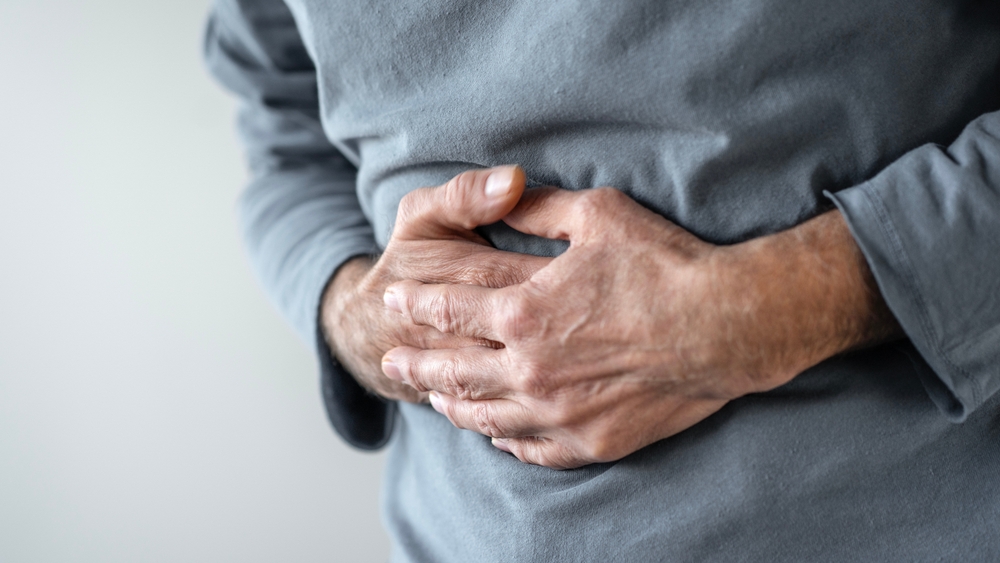
Helicobacter pylori is a bacterium that can infect the stomach lining and cause persistent inflammation.
A long-term infection with this bacterium has been shown to significantly increase the risk of developing stomach cancer.
The infection can often go unnoticed in its early stages, but over time it can damage the stomach lining, leading to serious complications.
Therefore, it is important to diagnose and treat H. pylori infections early to reduce the risk of cancer.
Nausea

Nausea is a common symptom experienced by many, but if it occurs repeatedly or alongside other symptoms, it may be a warning sign of an underlying condition.
Particularly if the nausea is accompanied by vomiting blood, it should be taken very seriously as it could indicate stomach cancer.
It is important to monitor whether the nausea worsens or changes character over time. In such cases, seeking medical attention for the necessary examinations is essential.
Loss of Appetite
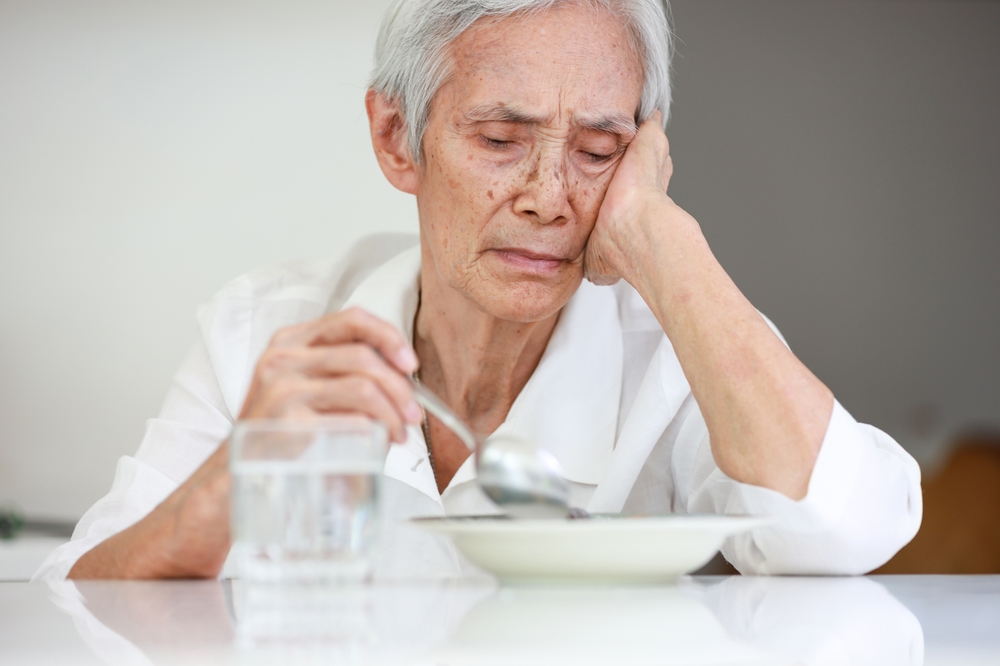
A reduced appetite can be a subtle yet important sign that the body is not functioning optimally.
When you begin to lose interest in food, it can quickly lead to unintended weight loss that cannot be explained by lifestyle changes alone.
This may be an early signal of an underlying condition, including stomach cancer.
If changes in eating habits and weight occur without an obvious reason, you should consult your doctor for a thorough examination.
Difficulty Swallowing

Difficulty swallowing, or dysphagia, is an early sign that something is not quite right in the esophagus or stomach area.
Many experience a tight or restrictive sensation when trying to eat or drink, which can cause discomfort and pain.
This condition may indicate changes in the upper parts of the digestive system, so it is important to have it examined by a doctor.
An early diagnosis can often prevent the condition from developing into something more serious.
Chronic Stomach Problems

Chronic stomach issues, such as persistent gastroesophageal reflux, can be contributing factors in the development of stomach cancer.
These conditions often lead to continuous irritation of the stomach lining, which over time can create an environment that promotes cancer development.
Although the symptoms may seem harmless at first, they should not be ignored—especially if they become frequent or more pronounced.
It is important to seek medical attention so that chronic issues can be diagnosed and treated in time.
Stomach Inflammation (Gastritis)
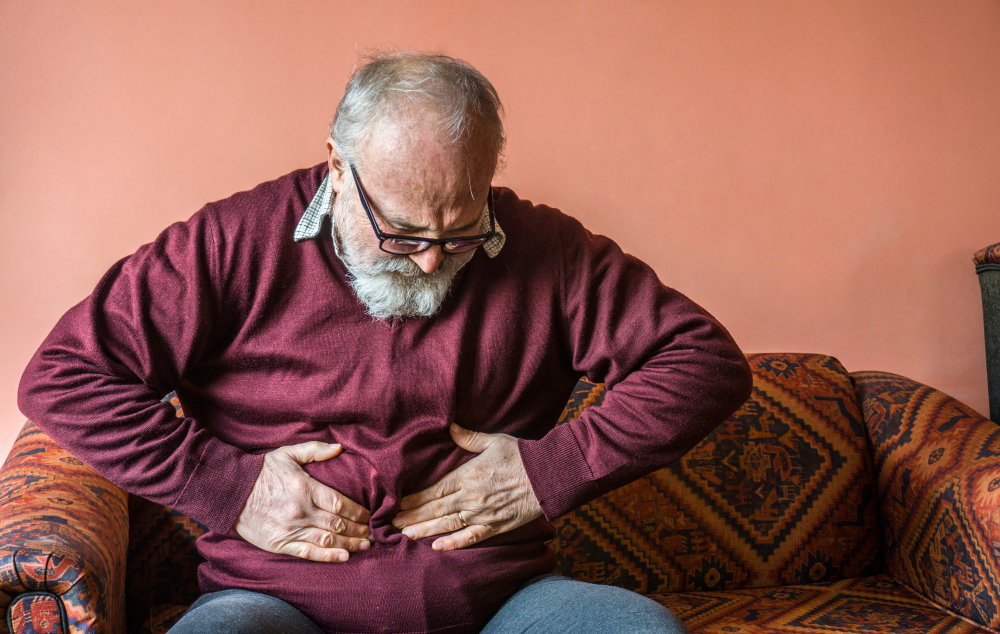
Stomach inflammation, or gastritis, occurs when the stomach lining becomes inflamed due to injury or irritation.
This condition can be caused by several factors, including infections, certain medications, or prolonged alcohol consumption.
If gastritis remains untreated, it can develop into a chronic condition that increases the risk of stomach cancer.
Therefore, it is important to have it properly diagnosed and treated to prevent the inflammation from leading to more serious health issues.
How Can the Risk Be Reduced?
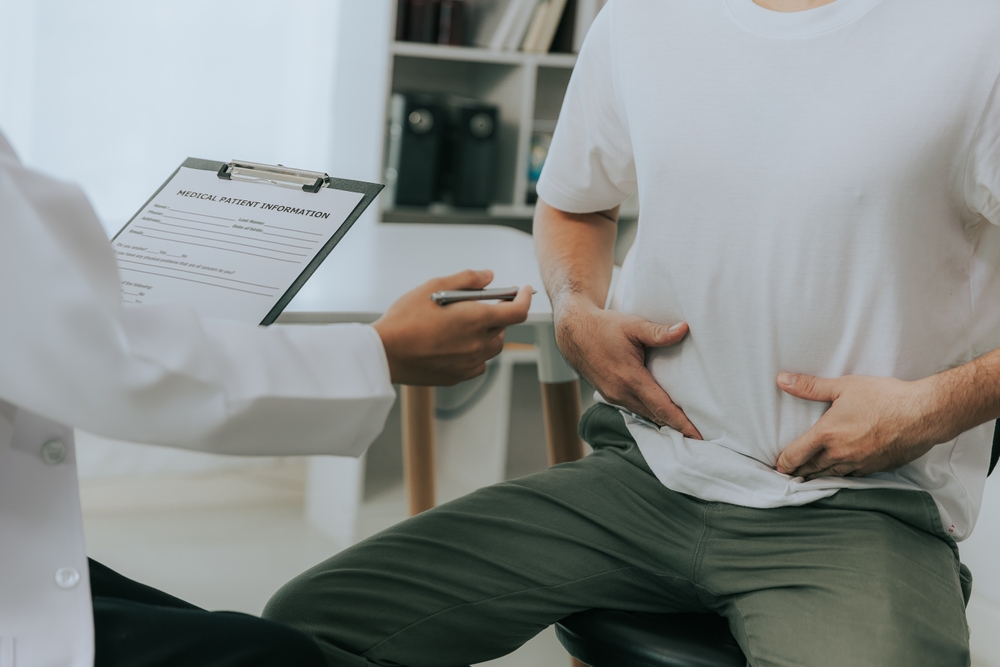
Stomach cancer cannot always be prevented, but there are several lifestyle changes you can implement to reduce the risk.
Some of these require minor adjustments in daily life, while others might be more significant.
It doesn’t have to be an all-or-nothing approach; it may simply be a matter of taking things step by step.
Weight Loss

Losing weight and achieving a healthy body weight can have a significant impact on the prevention of stomach cancer and other serious diseases.
Excess weight strains the body’s organs and can disrupt hormonal balance, increasing the risk of cancer development.
By shedding extra pounds, you not only improve your overall health but also reduce the risk of chronic diseases.
A combination of a balanced diet and regular exercise is often the key to successful and lasting weight loss.
Limit Salt Intake

A high salt intake can damage the stomach lining and is associated with an increased risk of stomach cancer.
According to the American Institute for Cancer Research, too much salt can cause damage that over time may develop into serious issues.
Therefore, it is advisable to monitor your daily salt consumption and choose alternatives that are gentler on the body.
Reducing your salt intake promotes healthier digestion and lowers the risk of disease.
Limit Alcohol

Alcohol is one of the most avoidable risk factors for cancer, and reducing alcohol consumption can have significant health benefits.
Excessive alcohol use can damage cells and lead to chronic inflammation, increasing the risk of cancer development.
By limiting your alcohol intake, you protect both your stomach and other organs from potential harm.
A moderate approach to alcohol is therefore an important step in reducing your overall cancer risk.
Fresh Fruits and Vegetables
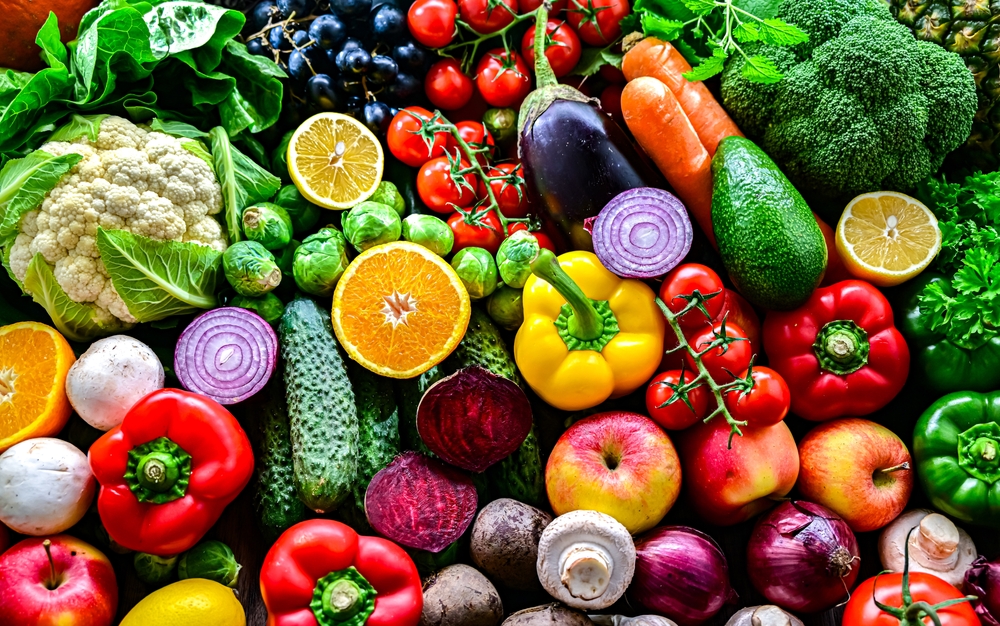
Eating a varied diet with at least five servings of fresh fruits and vegetables each day can have a beneficial effect on stomach function and your overall health.
These foods are packed with vitamins, minerals, and antioxidants that help protect cells from damage.
A diet rich in fresh produce can boost your immune system and improve digestion.
This healthy habit is an effective tool in preventing stomach cancer and other lifestyle-related diseases.
Red Meat

A high intake of red and processed meats, such as beef, lamb, ham, bacon, and salami, is associated with an increased risk of stomach cancer.
Reducing the consumption of these meats can lower the potential risk of cancer development.
It may be beneficial to replace red meat with lean meat, fish, or plant-based alternatives, which are often healthier.
Changing your eating habits can therefore contribute to better heart and stomach health.
Screening for Stomach Cancer
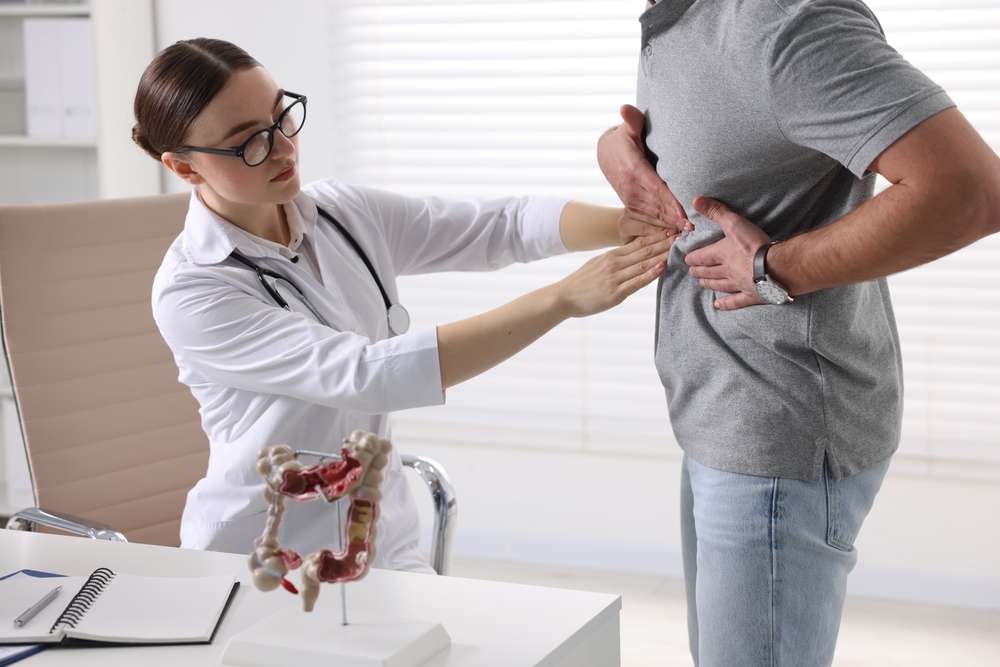
If there is suspicion of stomach cancer, you will often be referred to a gastroenterologist, a specialist in the digestive system.
The specialist typically performs an endoscopy—specifically a gastroscopy—which allows for inspection of the stomach and identification of abnormal changes.
This procedure is essential for early diagnosis, which can be crucial for the treatment outcome.
Regular examinations and attentiveness to your body’s signals are key in ensuring that any issues are detected in time.


